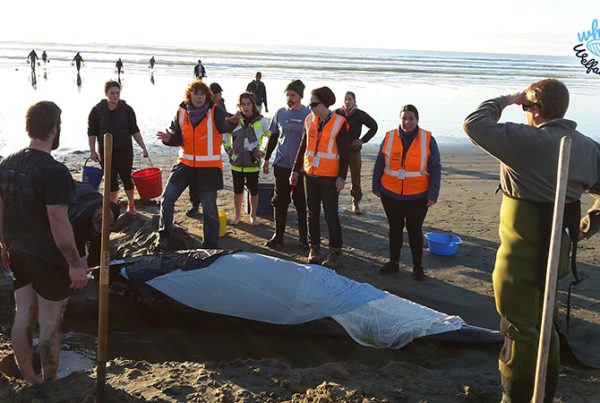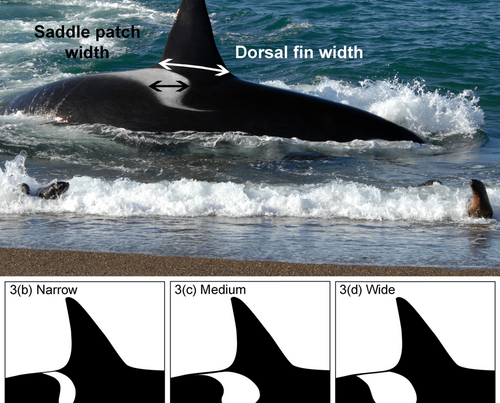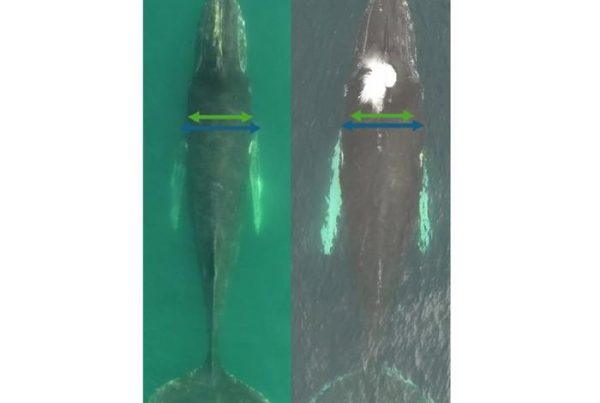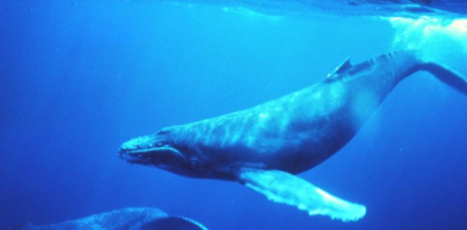
Climate Change – Why do whales matter?
Whales are ‘ecosystem engineers’, meaning they’re able to change the environment around them, maintaining the health of the oceans and providing services to humans that few people are aware of. They affect global carbon storage, buffering us from the impacts of climate change and also support healthy commercial fisheries.
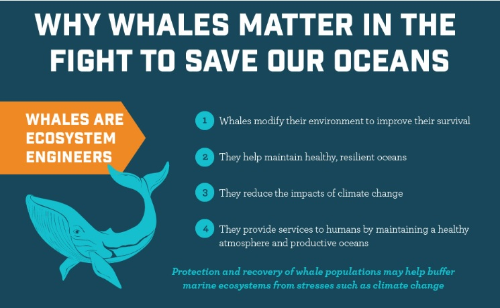
Whale Poo
Have you ever thought about whale poo?! Whale faeces are known to increase ocean productivity and support healthy fisheries. Being large animals, whale faeces are of course sizeable and fertilise the ocean considerably. Deposited wherever whales congregate, these faeces enrich the waters and encourage microscopic marine organisms (phytoplankton) to grow.
Forming the basis of all marine food chains, phytoplankton allows other more complex life to then flourish – including the fish species we rely upon within commercial fisheries.
This input of nutrients from the whales not only supports fish stocks but ensures healthy and resilient areas where ecotourism and local communities can thrive. Without the faecal input of whales, it is possible areas of phytoplankton would no longer bloom and marine ecosystems reliant upon the whales’ input would collapse.
Whales buffer the effects of climate change
Whales are also vital in minimising the impacts of climate change with their faecal cycles. As phytoplankton blooms due to whale faeces, it absorbs and permanently removes carbon dioxide from the atmosphere.
In the Southern Ocean alone, the 12,000 or so sperm whales found there permanently remove 200,000 tonnes of carbon from the atmosphere each year.
Whales also remove carbon from the atmosphere when they die. Their carcasses contain a large amount of carbon, which sinks to the ocean floor and provides food for numerous species.
This deep ocean carbon storage further limits the impacts of climate change.
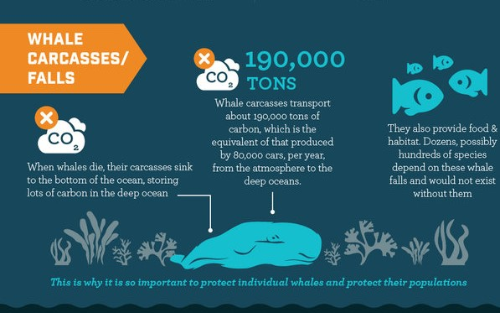
How can you help?
Given the importance of whales and the threats they face, we need to take action to protect them from further harm. The easiest way to do this is to use your consumer power to make ethical and environmentally conscious choices. By doing so you will be protecting ocean ecosystems and whales from harm.
- Choose sustainable seafood using Forest and Bird’s Best Fish Guide, which allows you to avoid environmentally damaging fishing methods or depleted stocks
- Say no to single use plastics and get creative! There are plenty of online and in-person stores that offer bulk refills for glass jars and more. You can also buy non-plastic toiletries easily online in New Zealand.
- Reduce your carbon footprint by choosing local transport and shopping locally
- Offset your carbon whenever you travel
- Repair and reuse household items whenever possible rather than buying new products
- Use reef-safe sunscreen to protect the oceans from chemicals that harm coral reefs
This article was written by divers and writers at LiveAboard.com. Click on graphic below for more information.

